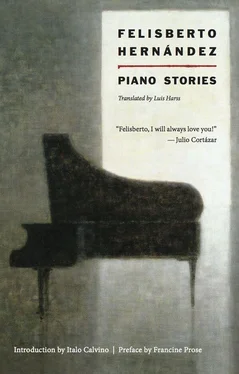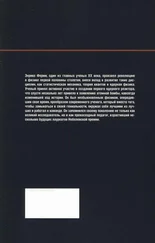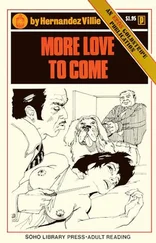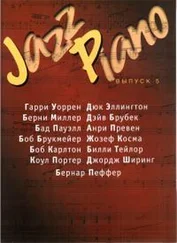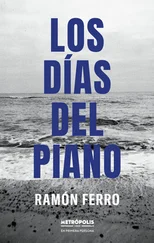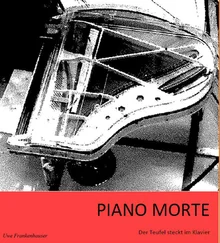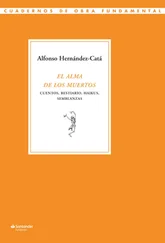Felisberto Hernandez - Piano Stories
Здесь есть возможность читать онлайн «Felisberto Hernandez - Piano Stories» весь текст электронной книги совершенно бесплатно (целиком полную версию без сокращений). В некоторых случаях можно слушать аудио, скачать через торрент в формате fb2 и присутствует краткое содержание. Год выпуска: 2014, Издательство: New Directions, Жанр: Современная проза, на английском языке. Описание произведения, (предисловие) а так же отзывы посетителей доступны на портале библиотеки ЛибКат.
- Название:Piano Stories
- Автор:
- Издательство:New Directions
- Жанр:
- Год:2014
- ISBN:нет данных
- Рейтинг книги:4 / 5. Голосов: 1
-
Избранное:Добавить в избранное
- Отзывы:
-
Ваша оценка:
- 80
- 1
- 2
- 3
- 4
- 5
Piano Stories: краткое содержание, описание и аннотация
Предлагаем к чтению аннотацию, описание, краткое содержание или предисловие (зависит от того, что написал сам автор книги «Piano Stories»). Если вы не нашли необходимую информацию о книге — напишите в комментариях, мы постараемся отыскать её.
Piano Stories
Piano Stories — читать онлайн бесплатно полную книгу (весь текст) целиком
Ниже представлен текст книги, разбитый по страницам. Система сохранения места последней прочитанной страницы, позволяет с удобством читать онлайн бесплатно книгу «Piano Stories», без необходимости каждый раз заново искать на чём Вы остановились. Поставьте закладку, и сможете в любой момент перейти на страницу, на которой закончили чтение.
Интервал:
Закладка:
In the morning the old man came in to apologize for the spider. His daughter had told him everything. I said it was nothing to worry about, and, to change the subject, I spoke of a concert I was about to give in a nearby town. He thought it was a pretext for leaving and I had to promise to return after the concert.
As we parted, I couldn’t stop the girl from kissing my hand. I didn’t know what to do. The old man hugged me and suddenly I felt him kiss me near my ear.
I never got to my concert. A couple of days later I received a phone call from the old man. After the first few words he said:
“Your presence is needed here.”
“Has something serious happened?”
“I’d say a real tragedy.”
“To your daughter?”
“No.”
“To Tamarinda?”
“No, no. I can’t tell you now. If you can postpone the concert, catch the four o’clock train and I’ll meet you at the theater café.”
“But your daughter is well?”
“She’s in bed. Not ill, but she refuses to get up or face the light of day. She can only stand lamplight and has had all the parasols folded.”
“All right, I’ll be there.”
The theater café was too noisy, so we moved elsewhere. The old man was depressed but eager to clutch at any hope I might offer him. He ordered his dark drink in the usual small glass and said:
“The day before yesterday there was a storm. We were sitting in the dining room in the evening when we heard a loud clatter. We realized at once it wasn’t the storm. My daughter ran up to her room and I followed her. When I got there she had already opened the door to the balcony and all she saw was the sky and the light of the storm. She covered her eyes and fainted.”
“You mean the light hurt her?”
“But, my dear friend! Don’t you understand?”
“What?”
“That we’ve lost the balcony! It fell out! It wasn’t the balcony light she saw.”
“But a balcony. .”
It was better to say nothing. He made me promise not to mention the subject to the girl. So what was I to do? The poor old man was counting on me. I remembered the orgies we’d had together and decided to simply wait and hope I’d be able to think of something when I met her.
It was distressing to see the corridor without the parasols.
That night we ate and drank little. Then the old man took me to his daughter’s bedside and immediately left the room. She had not said a word, but as soon as he was gone she turned toward the door that opened into space and said:
“You see how he left us?”
“But I can’t. . Balconies don’t fall out. .”
“He didn’t fall. He jumped.”
“All right, but. .”
“He loved me — as much as I loved him. I know because he’d already proved it.”
I hung my head. I felt involved in an act of responsibility for which I was not prepared. She had started to pour her soul out and I didn’t know how to receive it or what to do with it.
Now the poor girl was saying:
“It was all my fault. He got jealous the night I went to your room.”
“You don’t mean. .?”
“Who do you think I mean? The balcony, my balcony.”
“Now, isn’t that making too much of it? Remember how old he was. There are things that fall of their own weight.”
She wasn’t listening. She went on:
“That same night I understood the warning and the threat.”
“Come on, now. You’re not suggesting. .”
“Don’t you remember who threatened me? Who stared and stared at me, twitching those three hairy legs?”
“Yes, of course! The spider!”
“It’s him all over.”
She looked up at me. Then she threw off the covers and got out of bed in her nightgown. She headed for the balcony door and I thought she was going to jump out. I started to reach for her — but she was in her nightgown. While I hesitated she changed her course. Now she was going toward a small table next to the door that opened into space. On the small table, just before she reached it, I saw the notebook with the black oilcloth cover from which she read her poems.
She sat in a chair, opened the notebook and started to recite:
“To a balcony from
his widow. .”
The Usher
As soon as I grew up, I went to live in a big city. The city’s downtown — where everyone rushed around among tall buildings — was near a river.
I was an usher at a movie theater, but the rest of the time I, too, scurried around like a mouse in old furniture. I knew holes everywhere with unexpected connections through which to reach my favorite places. And it gave me just as much pleasure to imagine the parts of the city I didn’t know.
I had the late-afternoon shift at the theater. I rushed into my dressing room, polished my gold buttons, slipped my green tail coat on over my gray vest and trousers, and took up my post in the left aisle of the orchestra, where the gentlemen handed me the seat numbers and then fell in behind the ladies who followed my sinking steps down the red carpet. At each stop I did a minuet turn, bowed and put out my hand. I always expected to be surprised by the tip and knew how to bow at once with respect and contempt. I didn’t care if people weren’t aware of my superiority: I felt like an old rake with a flower in his buttonhole, wise to the ways of the world. I was happy watching the ladies in their different dresses and enjoyed the moment of confusion there was each time the screen lit up and the house darkened. Then I hurried back to the dressing room to count my tips, and afterward I set out to explore the city.
I got in tired, but on my way to my room, up stairs and along hallways, I hoped to see more sights through half-open doors. As soon as I turned on the light, the flowers of the wallpaper gave out a blaze of color: they were red and blue, on a black background. The ceiling light had been lowered on its cord until it almost touched the foot of the bed. I lay right under it to read, using a newspaper as a shade to block some of the glare and to dim the flowers a bit. At the head of the bed stood a table with bottles and other objects I watched for hours on end. Afterward I stayed awake with the light off until the sound of bones being sawed and hacked came in the window and I heard the butcher cough.
Twice a week a friend took me to a dining room where I could get a free meal. You went through an entrance hall that was almost as large as a theater lobby, into the silent luxury of the dining room. It belonged to a man who was going to go on offering those meals for as long as he lived because of a promise he had made when his daughter was saved from the river. The diners were foreigners sunk in memories. Each had the right to bring a friend twice a week. Once a month the host ate with them. He made a grand entry, like a conductor when the orchestra is ready to start playing, but the only thing he conducted was the silence. At eight o’clock sharp, a wing of the huge white double door at the far end of the room swung open on the dark emptiness of a neighboring room, and out of the darkness stepped a tall figure in black tails, his head cocked to the right and a hand raised to indicate we should remain seated. All faces turned toward him, but with blank stares, their eyes still on the thoughts inhabiting them at that moment. The conductor nodded a greeting as he sat and the players bent over their plates and sounded their instruments, each a professor of silence playing to himself. At first you heard pecking silverware, but then the noise took off and you no longer noticed it. To me it was just a meal, but to my friend, who was like the others, it meant the chance to spend a few moments remembering his country. Suddenly I felt confined to a circle the size of my plate, as if I had no thoughts of my own, surrounded by sleepers eating in concert, watched over by the servants. We knew we were finished with a plate when it was whisked away; soon we were cheered by the next one. Sometimes we had to divide our surprise between the plate and the neck of a bottle that came enveloped in a white napkin. At other times we were surprised at how the dark stain of the wine seemed to grow in the air, suspended in its crystal glass.
Читать дальшеИнтервал:
Закладка:
Похожие книги на «Piano Stories»
Представляем Вашему вниманию похожие книги на «Piano Stories» списком для выбора. Мы отобрали схожую по названию и смыслу литературу в надежде предоставить читателям больше вариантов отыскать новые, интересные, ещё непрочитанные произведения.
Обсуждение, отзывы о книге «Piano Stories» и просто собственные мнения читателей. Оставьте ваши комментарии, напишите, что Вы думаете о произведении, его смысле или главных героях. Укажите что конкретно понравилось, а что нет, и почему Вы так считаете.
